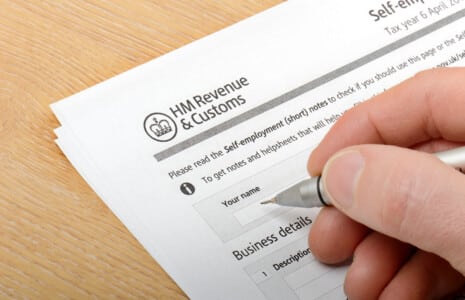KYC vs KYB vs AML Checks: What’s the Difference?
KYC, KYB, AML…there are various checks that accountants and bookkeepers must be aware of when looking to prevent fraud and ensure compliance. Read on for the differences between the three, and why they matter.
Understanding KYC, KYB, and AML Checks
Know Your Customer (KYC), Know Your Business (KYB) and Anti-Money Laundering (AML) checks are essential for fraud prevention and financial compliance. These processes help verify the identity of individuals and businesses, ensuring that financial transactions are legitimate and reducing the risk of fraud, money laundering and other financial crimes. For accountants, bookkeepers and other financial professionals, these checks are not just a regulatory requirement, but are also a crucial part of maintaining trust, protecting their practice and avoiding legal penalties.
What Is KYC (Know Your Customer)?
Definition: Know Your Customer (KYC) is a process used by businesses and financial institutions to verify the identity of individual customers.
Purpose: KYC checks help to prevent fraud, money laundering, and financial crime by ensuring that businesses know the true identities of those they are dealing with.
KYC Process:
- Collecting identity documents (passport, driving licence, proof of address).
- Verifying customer details using electronic checks or databases.
- Ongoing monitoring to detect suspicious activity.
What Is KYB (Know Your Business)?
Definition: Know Your Business (KYB) is similar to KYC, but involves verifying businesses, rather than individuals.
Purpose: These checks ensure that businesses engage only with legitimate companies and avoid dealing with fraudulent entities.
KYB Process:
- Verifying company registration details.
- Identifying ultimate beneficial owners (UBOs).
- Checking the business’s financial history and regulatory compliance.
What Are AML Checks?
Definition: Anti-Money Laundering (AML) checks are a broader compliance measure that includes both KYC and KYB to prevent financial crime.
Purpose: Anti-money laundering compliance checks ensure businesses, accountants, and financial institutions follow regulations to detect and report suspicious activities.
AML Process:
- Conducting Customer Due Diligence (CDD) and Enhanced Due Diligence (EDD) for high-risk clients.
- Screening individuals and businesses against sanction lists.
- Monitoring transactions for unusual or suspicious behaviour.
Key Differences Between KYC, KYB, and AML Checks
The main differences between KYC, KYB and AML checks are summarised in the following table:
Why Do Businesses and Accountants Need KYC, KYB, and AML Checks?
There are three key reasons why accountants, bookkeepers and other businesses need these checks in place.
- The first is regulatory compliance. Many industries – including finance, accounting and real estate – are required by law to conduct such checks as standard. A failure to do so may result in legal or financial penalties – or even business closure.
- The second is fraud prevention. These checks ensure that you are protected against fraudulent activities, reputational damage, and financial losses.
- The third is client and business trust. By conducting KYC, KYB and AML checks, you demonstrate a high level of professionalism and due diligence, giving clients and other businesses confidence in your work and your approach.
How to Implement KYC, KYB, and AML Checks in Your Business
By adopting the right tools and processes, you can streamline compliance and enhance client due diligence.
Using Digital Verification Tools
Manual verification can be time-consuming and prone to errors. Automated compliance platforms simplify KYC, KYB and AML checks by providing secure, real-time identity verification. These tools use AI and data-driven insights to cross-check client information against official databases, ensuring accuracy and speeding up onboarding while reducing risk.
Maintaining Accurate Records
Regulatory bodies require businesses to keep detailed records of all compliance checks. Maintaining solid documentation of KYC, KYB and AML checks is essential for audit purposes and demonstrates due diligence in the event of any regulatory enquiries. Using secure digital record-keeping solutions ensures that all necessary data is easily accessible and well-organised.
Training and Awareness
Compliance is an ongoing process, and employee awareness is key to its success. Regular training ensures that your team understands AML compliance and the importance of due diligence, helping to mitigate risks and fostering a culture of vigilance within your business.
Stay Compliant with ICPA’s AML and Due Diligence Support
ICPA members benefit from a wide range of tools to help them streamline KYC, KYB and AML compliance – including our ICPA Documentation Toolkit, on-demand training and more. These tools also include our AML Procedures Pack, featuring risk assessment tools and templates as well as internal reporting forms.
When was the last time you reviewed your firm’s compliance processes? Explore our compliance resources and other membership benefits, or contact us for more information on how we can help.
Get the latest news direct to your inbox
Sign up to our mailing list to receive weekly bulletins on all of the latest accounting news.
"*" indicates required fields




